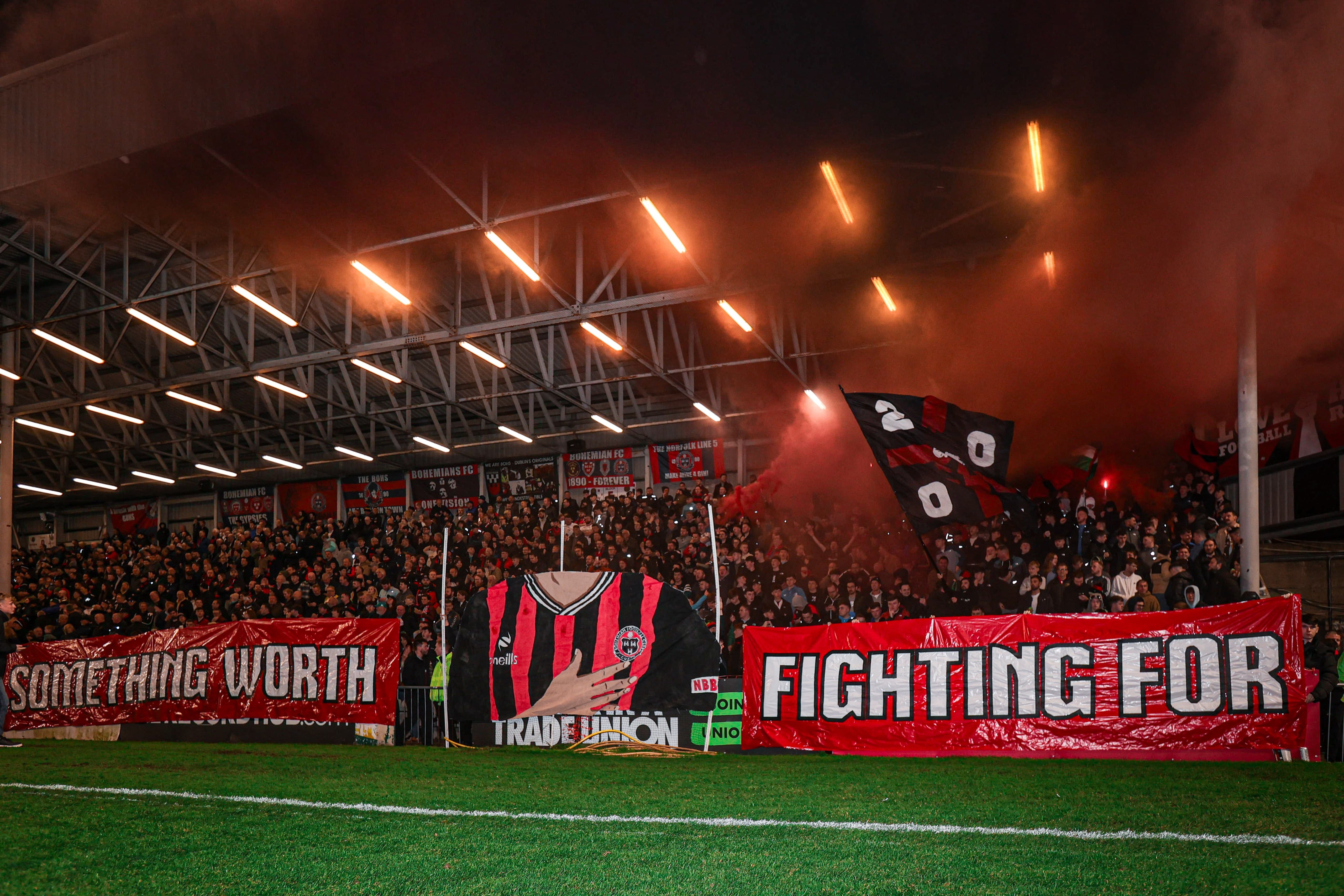

Lambert insists that, despite their corporate partners, Bohs have not felt pressured to act any differently, meaning they can undertake their community work freely. There is a message positioned above one of the stands at Dalymount Park, which was once sold to advertisers, but now reads: “Love football, hate racism” with a raised fist at its centre. “We used to sell that space,” Lambert explains. “But now, rather than a company, there’s an anti-racism message that may shape people’s views. It’s not a lecture. It just exists. And, on the side of the pitch now is a large mural with the Palestinian flag and the Irish flag. That’s in the stadium – 4,000 people seeing that every Friday. That might challenge some things that people are hearing in another part of their day or week.”
And it’s these supporters who form the true foundations of the club, and its values. Being fully fan-owned naturally requires the need to serve its members, which in turn means embodying their values, while empowering them to make decisions about how their club is run. As important as results on the pitch are, Bohs can’t just stick to the football.
“The success of the football club,” Lambert says, “directly rests on thousands of people willing to become a member, give time, buy shirts, all that stuff. If we’re to be successful, there has to be something that motivates and connects with these people beyond results on the pitch. If we can champion issues that are faced by the people of Dublin or Ireland, or issues that are close to their hearts that may be further afield, like in Palestine, then ultimately that’s connecting with people in a real way.”
That opening match of the season, against Shamrock Rovers in the Aviva, ended with a 1-0 victory to Bohs. It had not been a classic. Once the flares before kick-off had dissipated, the game settled into a generally flat, start-of-season spectacle, defined by rust and still-stiff joints. But compared to watching the Premier League on TV, where waxed millionaires with nice hair and stone-carved bellies pass sideways around the back, this League of Ireland match, in which good-but-not-elite athletes twatted the ball long and attacked down the wings, was magical. It was a fun day, underpinned by the warm hum of knowing the home team on the pitch actually speaks to the values of its fans. Win or lose – and the Bohs men’s team, following this game, would indeed go on a run of terrible form – there is more to this thing than three points and making money.
“The club gets hit with [calls to] ‘focus on the football’, this kind of stuff,” Conway tells me. “If you’re somebody who gets their fix out of a result on a Friday night, then happy days. But this club can impact many more people in the community who’ll never step foot into Dalymount on a Friday night. And that can be their three points, you know?”
Tiernan Cannon is an Irish freelance writer. Follow him on X.
Buy your copy of Huck 81 here.
Enjoyed this article? Follow Huck on Instagram and sign up to our newsletter for more from the cutting edge of sport, music and counterculture.
Support stories like this by becoming a member of Club Huck.







